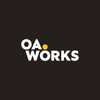The Open Access Button Does Speaking Of Medicine
This post was originally posted at http://blogs.plos.org/speakingofmedicine/2013/10/22/oa-button-launch-if-someone-hits-a-paywall-in-the-forest-does-it-make-a-sound/. Thanks to PLOS for publishing.
Co-leads of the Open Access Button Project, David Carroll and Joseph McArthur announce the launch of the Open Access Button. 18th November 2013.
10 years ago today. 19 organisations signed the Berlin Declaration on Open Access to Knowledge in the Sciences and Humanities to use the Internet for the “further promotion of the new open access paradigm to gain the most benefit for science and society”.
To this day, the idealism of the Berlin Declaration has yet to be made a reality. We’ve made great strides since that day — with realistic ways of achieving this aim having become clear. The reality is though that everyday people are still denied access to research on a monumental scale. These people are doctors, scientists, researchers, students, patients, politicians and journalists.
For the individual this denial of access to information is at best a frustration, but at worst highlights the potentially deadly gap between the information rich and information poor. This artificially created information inequity between the information rich and poor that’s an indictment of our current system. The system has evolved over the past 100 years — but is yet to respond to the current environment we live in. The difference between where we are now, and the world imagined by those who signed the Berlin declaration is not one of technology, or money. It is one of will and imagination.
Several months ago, we learnt about the current situation by the Right to Research Coalition. As students from Medsin UK dedicated to tackling global health inequity this situation struck us as an obvious injustice, we got angry and wanted to do something about it.
So, we used our imagination.
This idea was a browser plugin, which allowed you to track every time someone is denied access to a paper, where in the world they were or their profession and why they were looking. Integrating this into one place would create a real time, worldwide, interactive picture of the problem. The integration of social media would allow us to make this problem visible to the world. Lastly, we want to help the person gain access to the paper they’d been denied access to in the first place. Incentivising use and opening the barriers to knowledge combined will make this really powerful. We called it the Open Access Button.
Over the past 3 months, we’ve worked with this amazing team of developers to help make the tool a reality. Together we’ve used our evenings, weekends and hours of the morning that no one should ever see, to create this tool for the open access community. The beta product will include all of the core functions mentioned.
We are excited to announce the launch of the Open Access Button Beta will be at the very conference celebrating the anniversary of the Berlin Declaration, Berlin 11. Monday 18th November is the Student and Early Researcher Preconference and that is where the Open Access Button will be on view for everyone to see.
Come November 18th we’ll as asking people to use, test and most importantly feedback on the button before we get to work creating the next, beefed up version. Now though, can you help us launch with a bang and join ourThunderclap and sign up to be the first to use the button.
So far it has been the amazing team of developers and the two of us working on the project. Last month, we put out a call for new student leaders and today is also the announcement of those joining the team. The successful students truly reflect the international nature of the button. Joining the student leadership team is: Georgina Taylor from Australia, Chelsea Bowley from Italy/USA, Fabian Falkenbach from Germany, Penny Andrews and Natalie Catherwood from the UK, Juan Carlos López Tavera from Mexico and Bashir Muhammad Maru from Nigeria.
The new team members make it a truly global project, reflecting the very nature of the Internet that we’ve grown up with. The team also embody the system we’re working towards, a world in which every single person on the planet is given free access to the sum of all human knowledge.
We’re best when standing on the shoulders of giants, we’re better when those shoulders are openly available to read and re-use. The Open Access Button hopes to make the problems of paywalls impossible to ignore.
We will make the invisible visible.
David Carroll and Joseph McArthur
Open Access Button @OA_Button
David and Joe are the co-leads of the Open Access Button project. They are medical and pharmacology students at Queen’s University Belfast and University College London Respectively. They can be found on Twitter @davidecarroll and @McArthur_Joe

